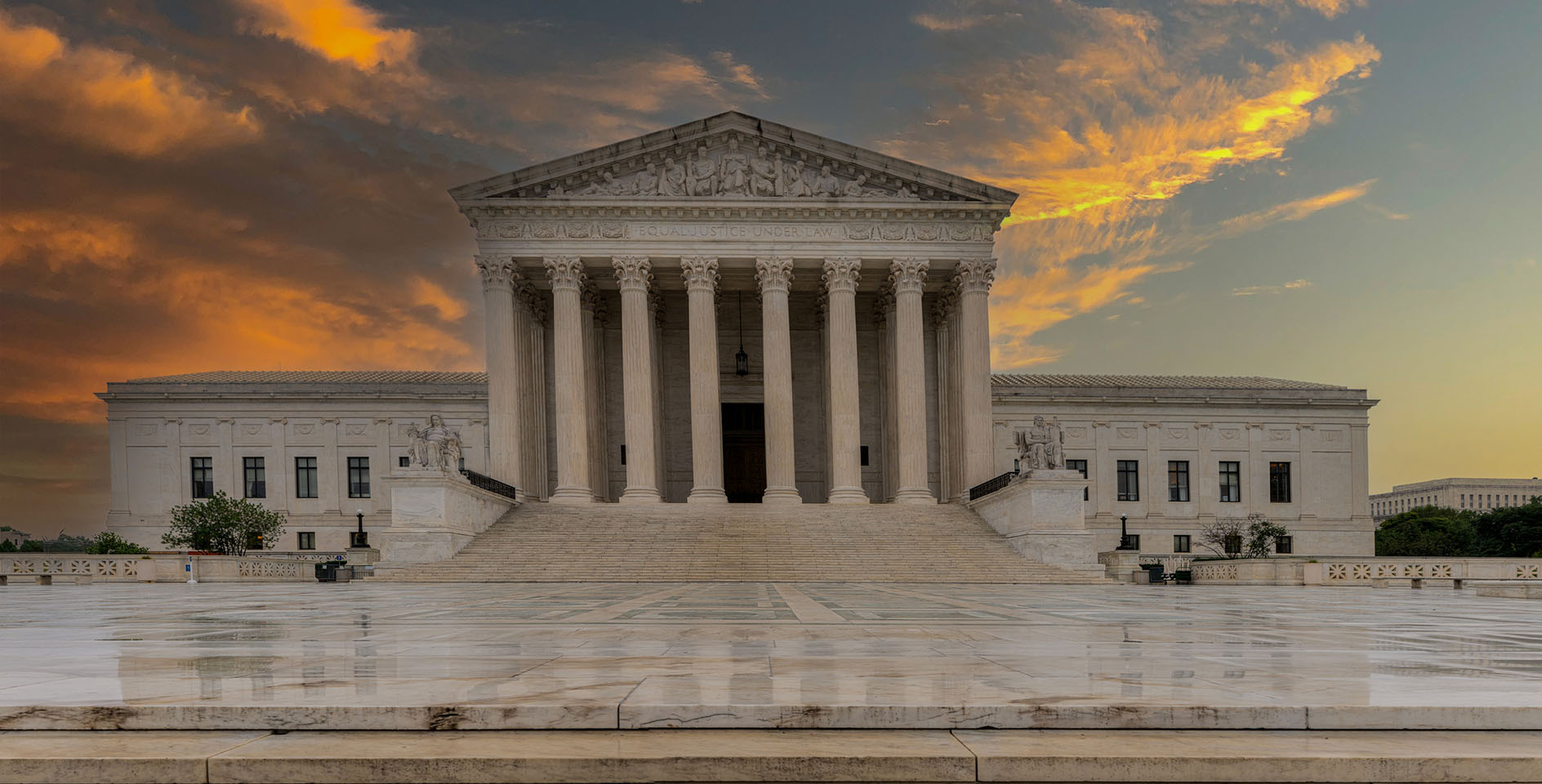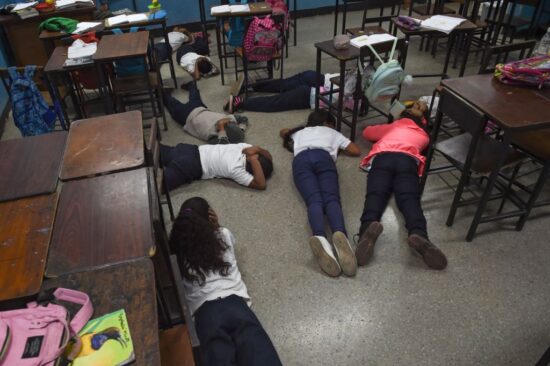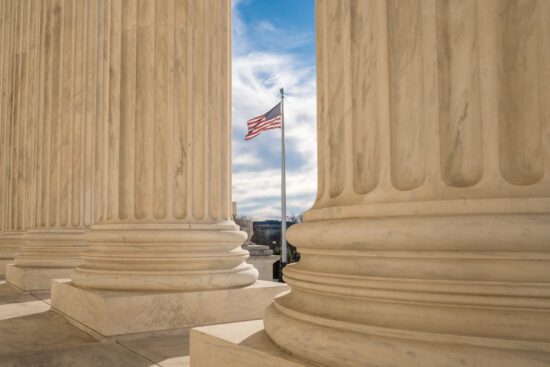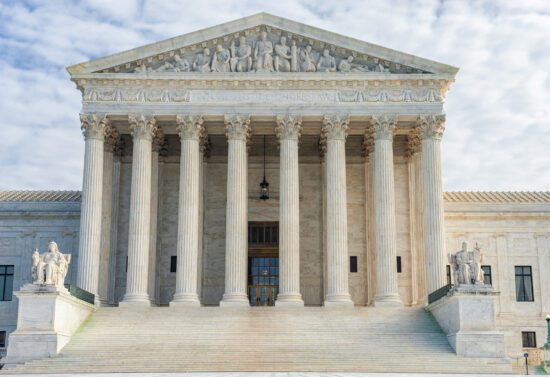On Nov. 7, 2023, the United States Supreme Court heard oral arguments in the case of United States v. Rahimi. The central issue in this case is whether a federal law that prohibits individuals with a standing domestic violence restraining order from owning firearms violates the Second Amendment. This case could have significant implications for the intersection of Second Amendment rights, domestic violence, and the protection of vulnerable lives.
Why does United States v. Rahimi matter for Southern Baptists?
The ERLC did not file an amicus brief in the Rahimi case. However, there are two SBC resolutions that are relevant to the arguments and outcome of the case.
1. In 1979, the SBC passed a resolution on domestic violence, recognizing it as “one of the serious moral issues of our time.” Additionally, the resolution encourages the “establishment of clear and responsible public policy related to domestic violence, which policy should be effective at the local, state, and national levels.”
2. In 2018, the SBC also passed a resolution on gun violence. As the resolution notes, “gun violence perpetrated against innocent persons is incompatible with the character of Jesus Christ.” The resolution affirms that gun ownership carries with it a great responsibility and calls on federal, state, and local authorities to implement preventative measures that would reduce gun violence and mass shootings while operating in accordance with the Second Amendment of the United States Constitution.
What is the case about?
The Supreme Court’s ruling will determine whether it is constitutional to prohibit individuals who are subject to domestic violence restraining orders from owning firearms.
The law at the center of the case is 18 U.S.C. § 922(g)(8), which prohibits the possession of firearms by individuals who are subject to domestic violence restraining orders. Here’s what happened:
- Zackey Rahimi was convicted of possessing a gun while subject to a domestic violence protective order, which was issued after he violently assaulted his domestic partner in a parking lot and shot a gun when he noticed that others had witnessed his abuse.
- Rahimi challenged the law as a violation of the Second Amendment right to bear arms.
- Until the 2022 Supreme Court ruling in New York Rifle and Pistol Association, Inc. v. Bruen, the constitutionality of this statute was consistently affirmed.
- However, this decision in Bruen has cast doubt on the stability of established firearm regulations by altering the judicial approach to Second Amendment scrutiny.
- The decision in Bruen established a “historical tradition” test for evaluating firearm regulations, which examines whether a regulation is consistent with longstanding principles, not whether it has a direct historical analogue.
- Following this Bruen precedent, the 5th Circuit Court of Appeals, which has jurisdiction over Texas, Mississippi, and Louisiana, reversed the standing federal law within these states in the Rahimi case.
What are the arguments that §922(g)(8) should be considered unconstitutional?
Some of the arguments made by those who support the 5th Circuit’s determination that the law is unconstitutional are:
- Second Amendment: Some argue that the possession prong of §922(g)(8) prohibits and severely punishes conduct protected by the plain text of the Second Amendment, specifically the “right of the people” to “keep and bear arms” that “shall not be infringed.”
- Due Process: Critics claim that the section does not require notice of the statute and the consequences of violating it, which they argue violates the Due Process Clause.
- Equal Protection Clause: It has been argued that §922(g)(8)(C)(ii) is unconstitutional as a violation of the Equal Protection Clause, as it treats individuals differently based on their status as prohibited persons.
- Lack of historical support: It has been argued that the government’s efforts to defend §922(g)(8) are incompatible with the Second Amendment and the Constitution as a whole, as they lack support from precedent, rejected constitutional proposals, and the original intent of the Founders.
- Ineffective and unnecessary: Some have argued that §922(g)(8) is a blunt instrument that does not effectively address the problem it targets, and that there are alternative means of addressing the issue of domestic violence without infringing on the Second Amendment
What are the arguments that §922(g)(8) should be considered constitutional?
- Public safety: Proponents of the law argue that it is necessary to protect domestic violence survivors and prevent further acts of violence by prohibiting individuals with domestic violence restraining orders from owning firearms
- Constitutional interpretation: Supporters of the law believe that it is a reasonable restriction on the Second Amendment right to bear arms, as it is narrowly tailored to address a specific and compelling government interest. They say the Supreme Court’s decision in Bruen established a “historical tradition” test for evaluating firearm regulations, which examines whether a regulation is consistent with longstanding principles, not whether it has a direct historical analogue.
- Necessary for the common good: Basic principles reflected in U.S. tradition include the government’s role in promoting the common good by protecting human life and dignity, showing special concern for the vulnerable, and respecting family autonomy while intervening when necessary to prevent domestic violence. They claim this law only bans the possession of guns by individuals who are truly dangerous.
- Consistent with historical regulation: The tradition of firearm regulation in the U.S. allows disarming dangerous individuals to protect the innocent. Laws dating back to the founding era restricted access to firearms by those deemed a threat.
- Adheres to traditional principles: Some proponents claim that §922(g)(8), which prohibits firearm possession by persons subject to domestic violence restraining orders, adheres to these traditional principles by disarming only those who have shown a willingness to commit violence. They claim the Fifth Circuit erred by requiring an exact historical match for the law and by questioning assumptions about restraining orders, and that the analysis should have focused on identifying relevant traditional principles and evaluating consistency.
What happens next in United States v. Rahimi?
The Supreme Court heard oral arguments in this case in November, and a decision is anticipated in May or June.
During oral arguments, the U.S. solicitor general made a compelling argument that upholding this law is in line with Justice Scalia’s opinion in the 2008 Heller decision, which maintained the application of Second Amendment rights to “law-abiding, responsible citizens to use arms in defense of hearth and home.”
Though we will not know the final ruling until an opinion is released, a majority of the court seemed poised to rule in the government’s favor.










